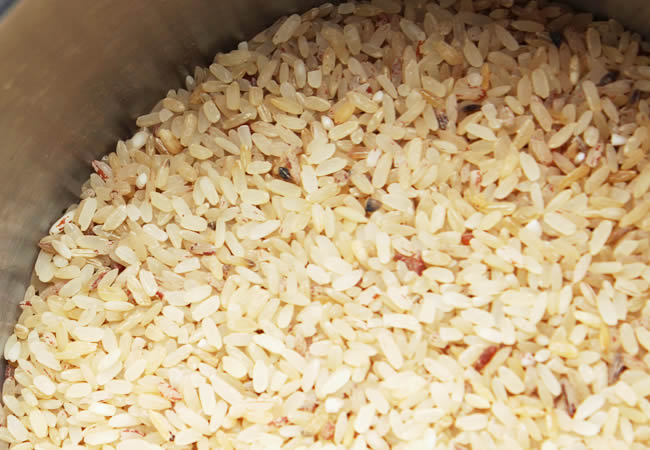The Vice-President of Olam Group, Mr. Reji George, has blamed the people responsible for re-bagging for the stones found in local rice since the closure of Nigerian borders.
Olam Group is a leading food and agri-business company that is also into local farming, milling and distribution of rice.
George spoke in reaction to the complaints that local rice were not stone-free.
He explained that his company had two of the biggest mills capable of producing high quality rice and that the standard had not changed.
“The standard is going up but the problem is that some set of people re-bag and when this happens, there’s bound to be issues,” he said.
He disclosed that on one side of the bag, the production and expiring date are clearly stated.
“We take extra caution on our products because we know how important our products are to Nigerians.
“Our milling capacity is about 105,000 tons per year and we also have partnership with local millers in Kano and the standard remains the same,’’ George said.
Meanwhile, All Farmers Association of Nigeria, AFAN, has called on Nigerians to exercise patience and understanding for the process involved in local rice production to be perfected.
Mr Ibrahim Kabiru, President of AFAN, made the call on Friday in an interview with News Agency of Nigeria (NAN) in Abuja.
AFAN was also reacting to complaints by consumers that local rice was no longer stone-free since the closure of borders.
Kabiru said that although he was not aware of such complaints, he insisted that rice went through some processes before it got to the final consumer.
“If stones are found in our locally produced rice of which I am not aware, it means that the stones must be removed to make it for consumption,’’ he said.
The president of AFAN also said rice production took a number of processes after the harvesting stage.
He said the processes ranged from drying, storing, milling and final processing, including de-stoning.
“It could be during these processes and considering the fact that rice must be produced optimally to meet local consumption,” Kabiru said.
He added that rice farmers also needed encouragement from the Nigerian public for them to put in their best to feed the nation.
He further said that a situation where stones were sometimes found in locally produced rice after border closure was not intentional.
“It’s a working progress because rice is a staple food for Nigerians and demand must meet supply and the demand is much,’’ he said.
Kabiru noted that Nigeria had outgrown the stage of importing foreign rice into the country to meet local consumption.
He said Nigerians should exercise patience that the challenge was not just to produce optimally for local consumption but also to produce for exportation.
“It’s about time Nigeria started earning foreign exchange from exportation of our locally produced rice.
“It is nutritious, straight from the farm, no additives for preservation and safe for consumption, that’s why we have to be patience for the production process to be perfected,’’ Kabiru said.














